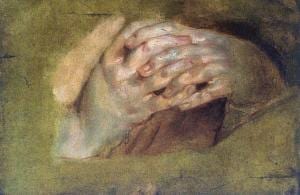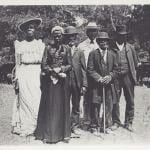 What should we do:
What should we do:
to end potential war between India and China?
to secure justice for African-Americans in the United States?
to feed the poor and house the homeless?
to save lives in this global pandemic?
to save babies from the scourge of abortion on demand?
to save Hong Kong from the Communist government of China?
Most of us do not know what to do about these issues and countless others filling our news feeds, yet by November citizens of the United States will be asked to choose. We will vote, not just for the President of the United States, but for many other leaders. They will suggest solutions to these problems and others more local. Many of the most pressing problems in my community, including the management of police officers, will be determined by local leaders whose names are almost unknown to us.
As good citizens, we shall do our best. We will study the issues, vote our conscience, and hope for the best. One reason to be a conservative in America is that there is little hope that this will be the road to Utopia.
The subject is serious, but the near absurdity of thinking we can decide deserves a humbling laugh. We know what we do not know.
Decent Christian advice is then to stop. Think about our decisions and then pray for wisdom. The pause, the reflection, the request for Divine wisdom appears to someone outside the Faith as doing nothing. This is a mistake, however, even if there is no God. Calm reflection, a recognition of one’s own limitations, being humble before the magnitude of the decisions, has value. A Christian knows what he does not know. One does not, of course, have to be a Christian to understand this truth (a non-Christian theist like Socrates certainly acknowledged his limits!), but Christianity underlines the truth.
God knows, sometimes we know, but we do not know all we must. We can and should learn more, but the more we learn, the more complex the problems we face are. We make culture more complicated and it is far easier to lose track of general principles.
Prayer, at the least, forces a pause in our desire to do. No Christian thinks that prayer is a substitute for work: Ora et Labora, Mary and Martha.
We know the deepest cause for any power we have, even to exist, is in God. He allows us to make choices and so can do work. We pray that God would plus our actions and give us the wisdom to know what to choose. Surely, even if one does not believe in God, the pause, the humility, the desire to get right what so easily could be wrong, is admirable.
Yet for a Christian there is more than this. We know that as a good Father, He will hear our heart cry, and when best, give us our heart’s desire. He allows us to cooperate with the divine order. Sometimes we have not, because we ask not.
And so prayer is a doing: a request that He who can give wisdom might give wisdom and that He who can do more than any human can, will do so. We get up from our prayers and go and labor modestly, knowing how badly we hear, but trusting that over eternity God will bring justice with mercy.
God save this Republic and this world.












